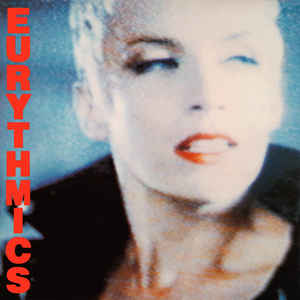|
home | what's new | other sites | contact | about |
||||||
|
Word Gems exploring self-realization, sacred personhood, and full humanity
Soulmate, Myself:
Kairissi. Love, real love, is not pleasure, as such, says Krishnamurti, but the world sees love and pleasure virtually as synonymous. Editor's note: Krishnamurti spoke of this in many of his talks, but a notable one is the April 16, 1968 lecture. Elenchus. This subject contains a great truth, but we must proceed cautiously here as it’s fraught with potential error. K. It’s very easy to get this wrong. How to begin this discussion? E. I think it would be helpful to take a wider view. Krishnamurti is saying that love, as popularly construed by society, is just another word for pleasure. K. But, let me stop you right there. Even if this is true, what’s wrong with this? Is it so bad for love to be equated with pleasure? E. This needs to be discussed. K. And allow me to say, too, as “devil’s advocate,” why are we even intimating that pleasure is bad? It sounds puritanical or victorian. Don’t we need pleasure to be psychologically healthy? And what about the higher-level virtues? – call it “God’s mind.” Don’t we experience pleasure by giving to those in need, by doing the right thing? Surely, the good feelings of pleasure are not unknown to Divinity. E. Alright, yes, the objections are piling up. All these are valid points and need to be addressed. K. In fairness to Krishnamurti, we need to keep in mind that his comments typically are made in the heat of debate, so to speak, as he lectures, without notes, sometimes to a “tough room,” an apathetic or even hostile group of college students. E. That’s correct, and so his use of terms are sometimes offered “on the fly” without a certain degree of precision that we might find in a carefully worded treatise. K. So, Elenchus, you’re our resident philosopher – what is Krishnamurti really saying? E. Let’s begin again, as I suggested earlier, by (1) taking a wider view, and (2) defining terms. K. We'd all like to know. E. That wider view will lead us to perceive that virtually everything the world does, its entire form of morality, is based upon pleasure-seeking, various guises of hedonism. K. Yes, of course, it’s not just “We’re looking for pleasure in love” but “We’re looking for pleasure wherever we can get it.” E. All of society and civilization is constructed to pursue, regulate, and acquire pleasure.
E. However, we know what the next question is: “So, what’s wrong with that?” K. As we touched on a few minutes ago, “Why shouldn’t we seek for pleasure in all aspects of life?” E. If all of us were more spiritually mature, there would be nothing wrong with this; in fact, as we’ve discussed elsewhere, our future life, our eternal life, might be viewed in terms of learning to enjoy our own existence. K. Which means pursuing various forms of pleasure. E. But, we need to define our words now: there’s “pleasure” and then there’s “pleasure.” K. (small smile) And, I take it, you're referring to the latter. E. Here’s the problem. There’s a kind of fleeting pleasure sought for by the ego which becomes a cloak for an underlying pain. K. Pleasure as a place to hide. E. And what is the ego hiding from? – it is the systemic fear of “I don’t have enough” because “I am not enough.” K. And it will enlist the aid of pleasure to distract and sedate itself, intoxicate and deceive itself, concerning the “made in the image” soul’s mandate to “come alive” and “open its eyes.” E. And so, it’s not the pleasure itself that’s the real problem so much, but the way it’s used. K. I’m reminded just now of that great quote by Susana Wesley, mother of John Wesley: “Whatever weakens your reason, impairs the tenderness of your conscience, obscures your sense of God, takes off your relish for spiritual things, whatever increases the authority of the body over the mind, that thing is [evil] to you, however innocent it may seem in itself.” E. It is a wonderful statement of wisdom by Mrs. Wesley. K. You know, Elenchus, as this entire issue becomes clearer, I suddenly realize that we’ve talked about this many times over the years. We used different words for it, but the meaning was the same. We have always said, even way back in “Prometheus,” that John-and-Mary love reaches no higher than “comfort” and “thrill”… E. And, in the present context, we would call that “pleasure.” K. Quite so. But, the real and authentic love, the Twin Soul love, is known by something even more compelling – it is “the joy.” And this joy is not rooted in the body, is not materialistic in nature, but issues from the soul. E. Very good, Kriss, and we should also point out that, with the higher order of love, the pleasures of body are never forfeited, they’re always there for us. It’s just that, the love experienced by Twins is far more potent and substantive. K. Elenchus, let’s offer a word about why Krishnamurti made an issue of all this in the first place. E. Krishnamurti’s mission was to help people understand the cause of the world’s unhappiness, strife, and violence. While the pleasures of the body, or any other material orientation, are good, of and by themselves, when the ego gets hold of these, they become perverted. Pleasure becomes the flip-side of pain. K. That’s very counter-intuitive: pleasure as pain. E. Here’s what this means. The ego might want many things: a new expensive house, flashy car, designer clothes, a trophy-wife, degree from a prestigious college – it could be anything. All these things, the ego believes, will make it “more.” It sees itself as an empty vessel, as "not enough." It will feel better, it assures itself, in the enhancement of "more." K. This is the “pleasure” part. E. The ego experiences a certain pleasure when it gets what it wants. But it doesn’t last long. K. How quickly that shiny new car loses its luster; after only a few days or weeks, you begin to see it in the garage as “same old, same old.” What happened to the juice? E. Similar with the new house, or the new clothes… K. ... or the cute trophy-wife - "is the honeymoon over already?" as they say. E. How quickly everything loses its fizz and sparkle. But it gets worse. The ego begins to worry, “What if I lost all my money?” or "What if I lost my enviable job?" or “What if my trophy-wife left me? What if some guy steals her away?” K. And this fear of loss, in all of its forms, hangs like a grey cloud over everything that the ego thought it had finally won. E. This is the pain that enshrouds the short-lived pleasures of the ego. And this is what Krishnamurti means by “love as a form of pleasure.” But it's not pure pleasure; it's laced with some distasteful elements. It’s not very satisfying, and, in the history of the world, no one has ever found lasting happiness with any of this. K. In these “Omega Point” writings, we are exploring the future of love and marriage. And it would appear that we’ve already offered our conclusion to the present discussion. It is clear, to anyone willing to see, that the unending Twin romance and marriage could never be built upon the shifting sands of the ego’s definitions of tainted pleasure. E. It is only “the joy,” with foundations in the soul, which might offer the eternal romantic love. K. The problem of "pleasure as pain", especially for lovers, runs even deeper than "I fear losing you, and this ruins my sense of pleasure." E. Tell us what you see, Kriss. K. The real difficulty here is more fundamental. John might see Mary as a "trophy-wife." And that's where the disease of the ego sets in. E. But, we'll surely be asked, why is that a problem? Seeing her as a "trophy-wife" is compliment to her beauty, is it not? K. Yes, it is a compliment, and that part is fine, as far as it goes, but here's the real issue: Mary was not sent to this Earth as a "trophy-wife." That's not on her birth certificate, if you see what I mean. She's a human being, with needs, desires, and awesome human potential. And when John hangs a label on her as "trophy-wife," what he's really doing is limiting his view and reducing her status to that of "You are my pleasure source." She may very well be, but this greatly distorts Mary's value as a sacred person with cosmic destiny. Not only that, but John's misperception creates a sense of distance and separation between them, all of which destroys their intimacy.
E. Thank you for this important comment, Kriss, but now we've opened up a vast new front in our discussion. K. Let us continue this in a "Part II" investigation of how the ego creates images for everyone it meets, and why, on a macro scale, this leads us to a world of strife and fragmentation. Restatement In this article and elsewhere we’ve intimated that pleasure, often associated with bio-stimulus, is low grade. And that a higher grade version would be linked to joy and “no you and no me.” While this is true, from another perspective, we should not see pleasure as something suspect or checkered. It serves a purpose and is right and good in its own domain. The mystics warn against the lure of pleasure. Is this valid? Let us restate: So much of pleasure, usually, bio-pleasure, is a means to sedate and distract oneself for an underlying pain. What is the nature of this pain? It is the existential pain of “I do not have enough” because “I am not enough.” Dealing with this by means of repression is unhealthy. And this de facto avoidance of reality is the main problem with pleasure, which the mystics warn against. But pleasure, of and by itself, is something good. When we expand the definition of pleasure well beyond the borders of bio-stimulus, it can become a feeling of well-being associated with the positive aspects of the soul. And this enhanced meaning of pleasure, but not to exclude its first stirrings, is what we want.
K. Before we leave, though we are now guilty of too many good-byes, we should mention that there’s another aspect of this problem of pleasure. It’s so important that we’ve created a separate writing just to explain it. E. Should we give our readers a hint? K. A few words can’t do it justice; however, Krishnamurti asked the question, why is the world so hell-bent on seeking for pleasure? – yes, alright, pleasure is, well, pleasurable, we get it, but people are so crazy to gain it that a pursuit for pleasure drives virtually all of our actions and, indeed, the world’s sense of morality. Why is this the case?
|
||||||
|
|



